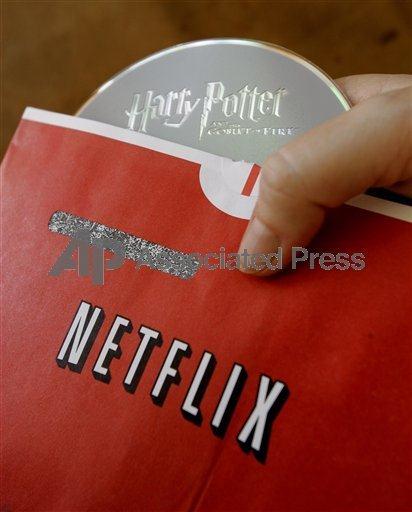Netflix, the low-retail priced movie renting service founded in 1997, has seen serious economic downturn in the last quarter due to a change in price and concept. The company has lost over 800,000 patrons since the end of June and those numbers continue to rise.
Originally Netflix was simply focused on providing a service to stream movies through the internet. For just $7.99 a month, customers could purchase unlimited streaming. Then for an additional $2.00 they could sign up to receive one DVD at a time through the mail. However, announced in June, a new program started on September 1st 2011 in which the services have been split into two distinct parts. There is now a separate DVD service and streaming service. With both services costing $7.99 the price to receive DVDs and stream has risen 60% to $15.99. Many people were left unhappy with this change chose to drop the service.
A further loss of customers is due to Netflix’s neglect of human laziness. The change required customers to separate their once consolidated accounts into to two separate entities, one for streaming and one for DVDs. Divided customers must manage both of these accounts and treat them independent from one another. The once simple service has suddenly become confusing and tedious to customers causing them to cancel membership. This lost of customers has also caused a decline in the numbers of investors.
Netflix has claimed that the decline of customers can be contributed to the fact that they did not take the time to introduce and fully explain their policy changes. Thus, to the average customer the company appeared greedy and willing to take advantage of them.
Despite Netflix’s denial of the accusations of greediness there is simply no other way to view the situation. The increase of price is purely due to Netflix’s attempt to expand their business. The company has been trying to tap into markets in the U.K. and Ireland. Not only does moving operations over seas cost more money, the Internet streaming rights in Europe are more expensive. These expenses cost Netflix large profit loses and forced them into to raising their prices.
A Netflix user myself, it is hard to accept their price increases when the streaming service itself is less than satisfactory. Don’t get me wrong, if the streaming service offered new to DVD movies I would gladly shell out $15.99 a month for unlimited movies, even if that price did not include the DVD renting service. However the current service Netflix offers only lets customers watch hackneyed 1980s high school comedy movies or corny action and horror flicks. The extra money I am currently paying does not even benefit me. It would be understandable if the money was being pumped back into the US streaming service because the extra money would improve my movie watching experience. Yet, the money goes towards expanding Netflix into Europe. This objective literally has no effect on US customers; however we are expected to fund Netflix’s business ventures.
It seems that Netflix, like the technology the company uses, has become cold. Instead of focusing on providing a service that customers find satisfactory, they want to make profit, clearly shown in their willingness to expand their customer base while the service offered in America is less than pleasing. In a world of globalization where the bigger number is the better number, it seems like the customer no longer plays an important role in Netflix business decisions.


Jewel Rama • Jan 24, 2012 at 9:48 pm
I think this is wrong, upon defeating blockbuster in the open market, neftlix now is attempting to take adavantge, only problem is some young company will seize this oppetunity and run with it, just the same way netfix did to blockbuster.
ben barnhart • Jan 17, 2012 at 9:03 pm
As a fellow of netflix, I find the instant movie selection, rather unappealing. Netflix should be more attentive to their loyal AMERICAN customers who got their operation started and not on an expensive overseas market.
Parnell Boyd-Kelley • Jan 17, 2012 at 10:29 am
I was completely outraged also, i mean what draws customers to Netflix is the affordability factor. This was definitely a bad pr move for Netflix. On top of that, Netflix doesn’t have the best track record for releasing new movies at an efficient pace, so when they lost the affordability attribute, its no wonder why the company suffered.